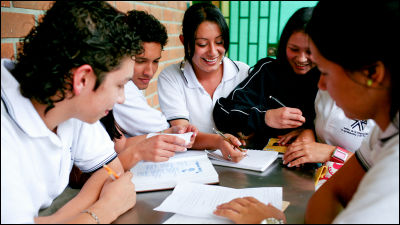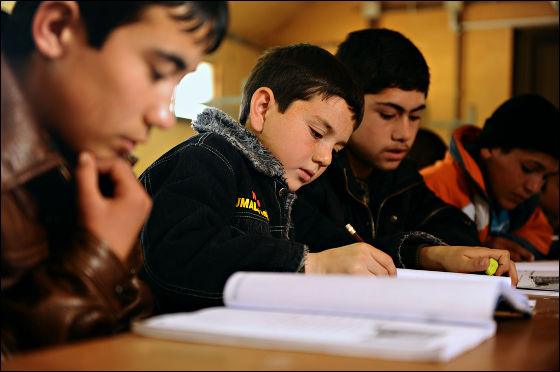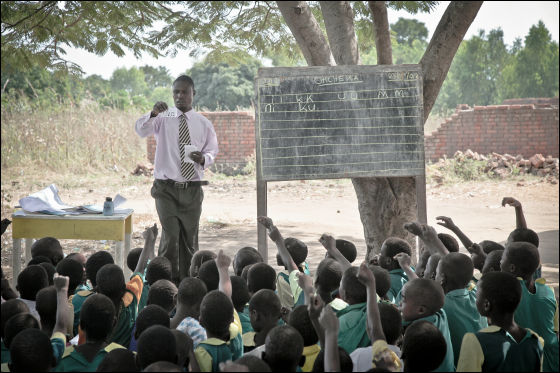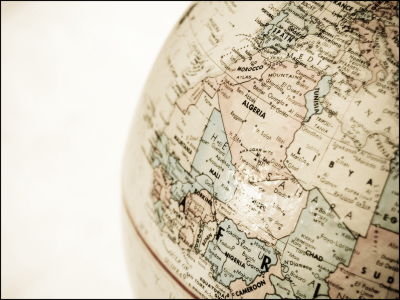The result of the international academic ability survey in 2012 is released, the good result in Asia stand out

ByWorld Bank Photo Collection
Economic Cooperation and Development Organization(OECD) on international learning achievementPISAI call it. PISA investigates three fields of reading comprehension, mathematical literacy, scientific literacy for 15 years old boys and girls every three years, and in the survey of 2012, about 51 living in 65 countries and regions around the world Ten million students took the exam and Japan gained a score higher than in 2009.
Key findings - Organization for Economic Co-operation and Development
http://www.oecd.org/pisa/keyfindings/pisa-2012-results.htm
Pisa 2012 results: which country does best at reading, maths and science? | News | theguardian.com
http://www.theguardian.com/news/datablog/2013/dec/03/pisa-results-country-best-reading-maths-science
U.S. 15-Year-Olds Slip in Rankings on International Exams - WSJ.com
http://online.wsj.com/news/articles/SB10001424052702304579404579234511824563116
When ranking 65 countries and regions that underwent PISA-like survey by the average point of the test, all three items of mathematical literacy (hereafter, mathematics), reading comprehension, scientific literacy (science) It was Shanghai that ranked top. After that, Singapore and Hong Kong continued, ranked in Japan as seventh in mathematics, reading comprehension and science as fourth place, and succeeded in raising grades from the 2009 survey. (Click on the image, you can see all the rankings of 65 countries and regions)

It was 2000 years since the PISA survey started studying the academic ability of children all over the world. Currently, the results of mathematics in secondary education in the countries and regions participating in the test seem to be drawing attention, especially thought to be "a future guideline for the region's success".
◆ Asia
Asia has better results than other areas. According to OECD test results, seven countries and regions in Asia such as Shanghai, Singapore, Hong Kong, Taiwan, South Korea, Macao and Japan occupy the top seven mathematical grades. According to the OECD report, children in Shanghai, in particular, have produced excellent results in mathematical tests, and there is a difference of more than three years of education period with children in other countries and regions. It is that.

◆ Overall grades up and down
Looking at 64 pieces of data excluding one non-comparable data, 32 countries and regions improved performance in reading comprehension ability, 22 points recorded results which did not change from the previous survey, And in 10 places the performance suffered a decline. 25 matches showed better results than last time, there were no changes in 25 countries and regions, and the performance declined at 14 places. The results of mathematics in Qatar, Kazakhstan and Malaysia seems to be improved by 8 points per year. In science, performance improvements were seen every year at 19 locations out of 64 countries and regions, no change was seen in 37 areas, and at 8 locations there was a performance decline. Among them, three scientists in Kazakhstan, Turkey and Qatar have averaged 5 points each year in the science test.
In addition, reports say that the results of mathematical tests in Brazil, Chile, Germany, Israel, Italy, Mexico, Poland, Portugal, Tunisia, Turkey have been progressing consistently.
◆ Men are more mathematical literacy than girls
Among the 65 countries and regions where the PISA survey was conducted, 37 men got better results than girls in mathematical tests. On the other hand, only five areas of Jordan / Qatar / Thailand / Malaysia / Iceland have got excellent results in girls mathematics. According to the OECD, gender differences in mathematics grades are relatively small, only six countries have differences over education period over half a year. Also, girls had a low motivation to study mathematics, and thought that mathematics was inferior to boys.

ByNATO Training Mission - Afghanistan
However, in the survey from 2000 to 2012, there are 11 regions where girls have shown excellent values in reading comprehension. According to the results of the PISA survey, there should be little gender difference in science, but in Colombia, Japan and Spain, boys seem to have better outcomes.
◆ Revenue and Results
Furthermore, in the report we see the impact of economics on mathematical tests, and we know that there is a correlation between per capita GDP and performance. In the report, "GDP per capita can explain the average score of the country by 21%. Even if income is not all, judge grades of countries with relatively low national income such as Vietnam and Indonesia In case it should also be taken into consideration "is written.

ByErik Törner
Related Posts:
in Note, Posted by logu_ii







